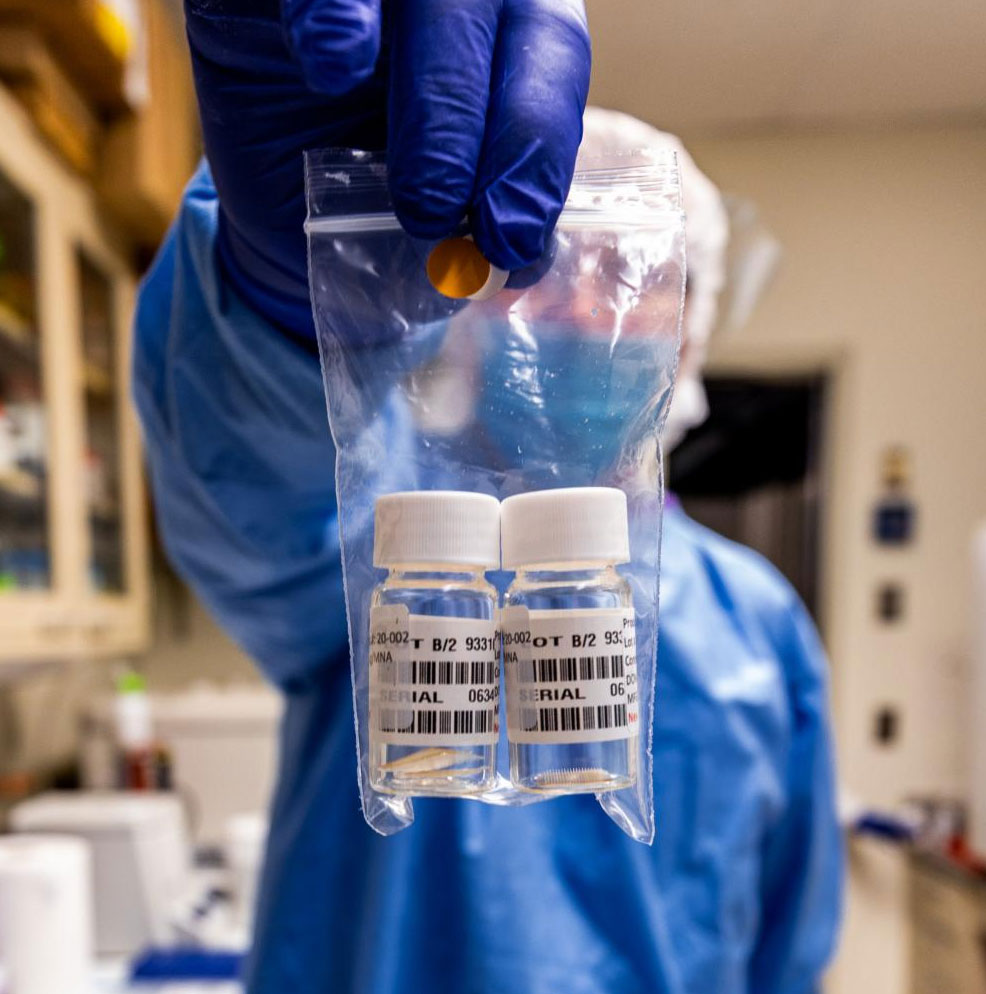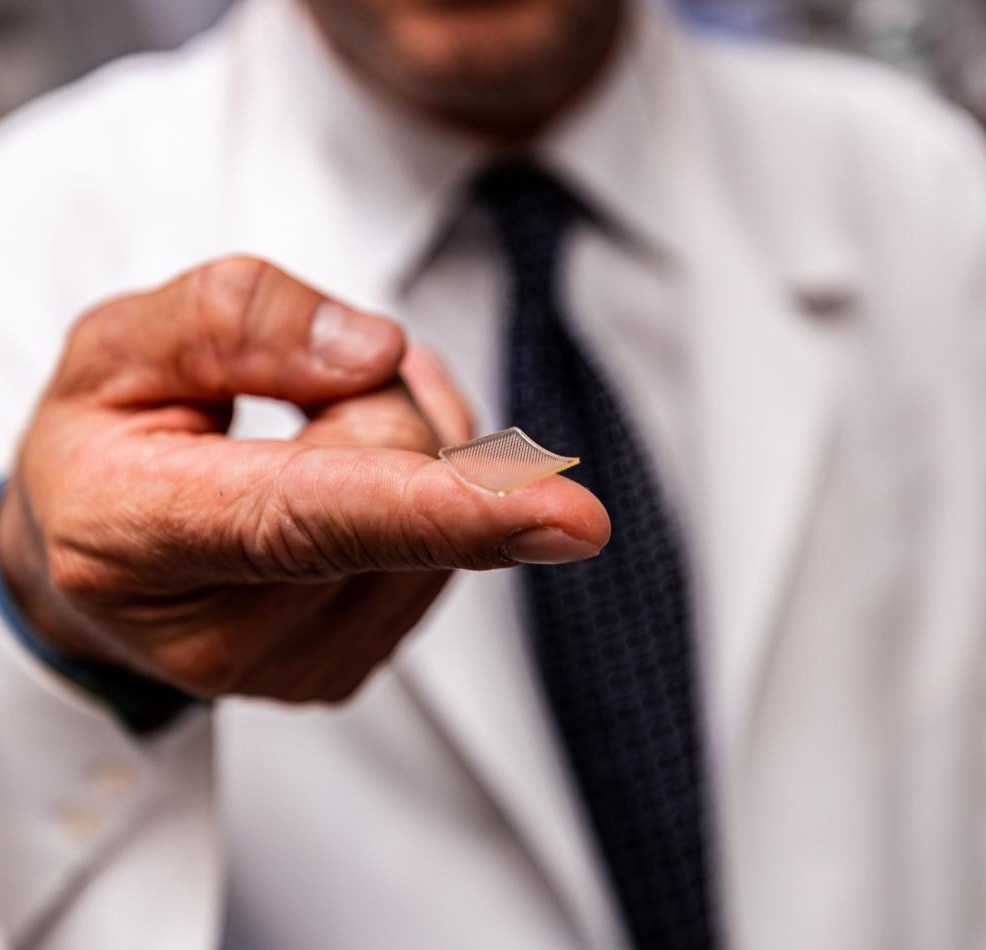
5th April 2020 COVID-19 vaccine candidate shows promise Researchers at University of Pittsburgh School of Medicine report the creation of a promising COVID-19 vaccine candidate – named PittCoVacc – and are hoping for a fast approval track, lasting less than the usual year of testing, by the U.S. Food and Drug Administration (FDA).
Scientists at the University of Pittsburgh School of Medicine (UPSM) have announced a potential vaccine against SARS-CoV-2, the new coronavirus causing the COVID-19 pandemic. When tested in mice, the vaccine, delivered through a fingertip-sized patch, produces antibodies specific to SARS-CoV-2 at quantities thought to be sufficient for neutralising the virus. A paper, appearing this week in The Lancet, is the first study to be published after critique from fellow scientists at outside institutions that describes a candidate vaccine for COVID-19. The researchers were able to act quickly, thanks to groundwork already laid during earlier coronavirus epidemics. "We had previous experience on SARS-CoV in 2003 and MERS-CoV in 2014," explains Andrea Gambotto, M.D., senior author on the study and Associate Professor of Surgery at UPSM. "These two viruses, which are closely related to SARS-CoV-2, teach us that a particular protein, called a spike protein, is important for inducing immunity against the virus. We knew exactly where to fight this new virus. That's why it's important to fund vaccine research. You never know where the next pandemic will come from." "Our ability to rapidly develop this vaccine was a result of scientists with expertise in diverse areas of research working together with a common goal," explains Louis Falo, Ph.D., Professor and Chair of Dermatology at UPSM. Compared to the experimental mRNA vaccine candidate that just entered clinical trials, the vaccine described in this paper – which the authors call PittCoVacc, short for Pittsburgh Coronavirus Vaccine – follows a more established approach, using lab-made pieces of viral protein to build immunity. It's the same way that current flu shots work. The researchers also used a novel approach to deliver the drug, called a microneedle array, to increase potency. This fingertip-sized patch of 400 tiny needles can deliver the spike protein pieces into the skin, where the immune reaction is strongest. The patch goes on like a Band-Aid and then the needles – which are made entirely of sugar and the protein pieces – simply dissolve into the skin.
"We developed this to build on the original scratch method used to deliver the smallpox vaccine to the skin, but as a high-tech version that is more efficient and reproducible patient to patient," said Falo. "And it's actually pretty painless – it feels kind of like Velcro." Hundreds of millions of COVID-19 vaccine doses will need to be produced worldwide, so the researchers made sure their process was scalable. The protein pieces are manufactured by a "cell factory" – layers upon layers of cultured cells engineered to express the SARS-CoV-2 spike protein – that can be stacked further to multiply yield. Purifying the protein can also be done at industrial scale. The microneedle array is mass producible using a centrifuge to mould the mixture of proteins and sugar. Once manufactured, the vaccine can sit at room temperature until needed, eliminating the need for refrigeration during transport or storage. When tested in mice, PittCoVacc generated a surge of antibodies against SARS-CoV-2 within two weeks of the microneedle prick. The animals have only been tracked for a short time and will need to be monitored over a longer duration. However, the researchers point out that mice who got their MERS-CoV vaccine produced a sufficient level of antibodies to neutralise the virus for at least a year – and so far, the antibody levels of the SARS-CoV-2 vaccinated mice are following the same trend. Importantly, the SARS-CoV-2 microneedle vaccine maintains its potency even after being thoroughly sterilised with gamma radiation: a key step in ensuring its suitability for use in humans. The team at Pittsburgh are now in the process of applying for an investigational new drug approval from the FDA, with anticipation of starting a phase I human clinical trial in the next few months. "Testing in patients would typically require at least a year and probably longer," said Professor Falo. "This particular situation is different from anything we have ever seen, so we don't know how long the clinical development process will take. Recently announced revisions to the normal processes suggest we may be able to advance this faster."
Comments »
If you enjoyed this article, please consider sharing it:
|








